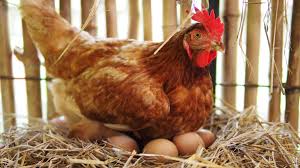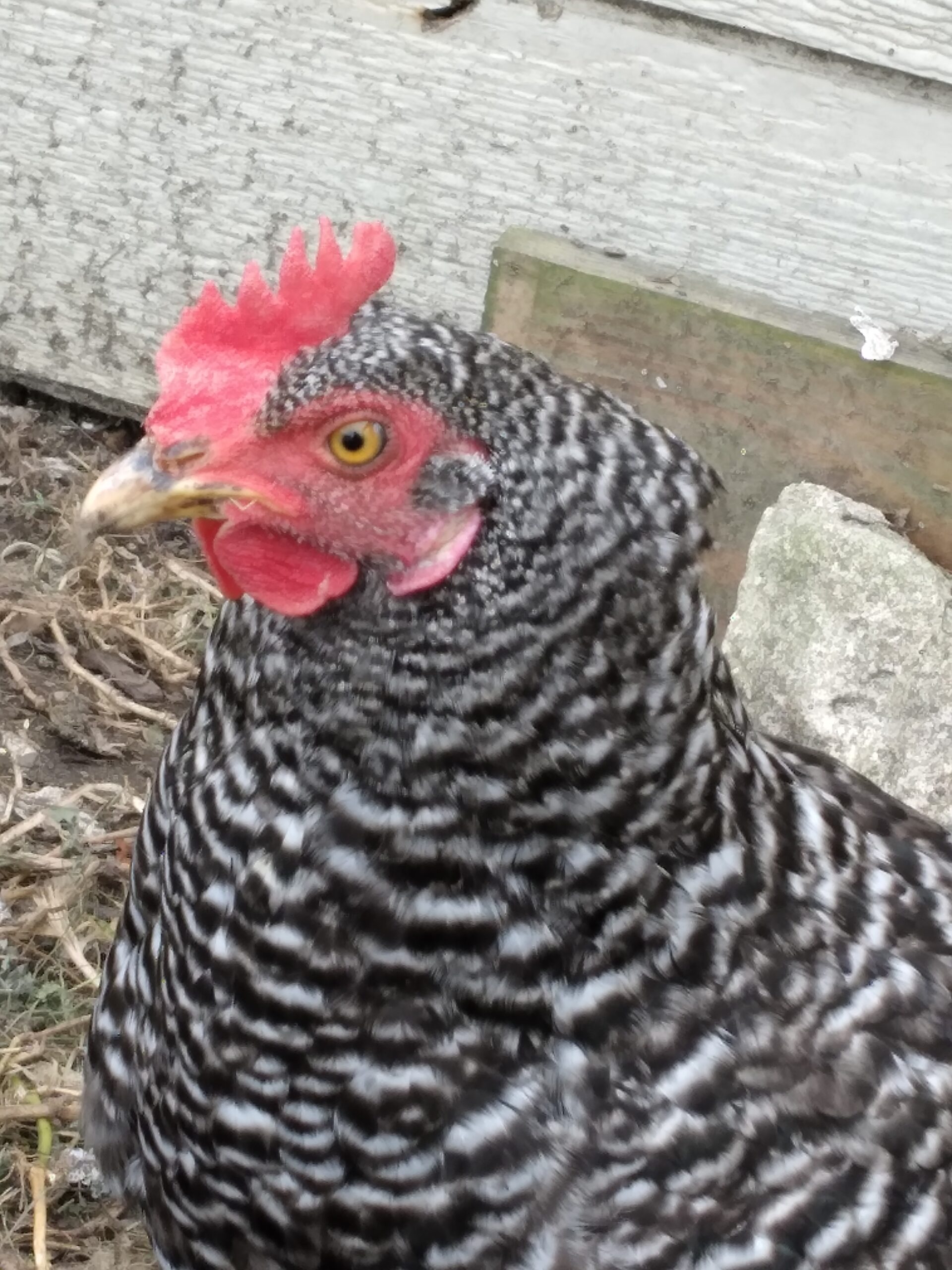20 Reasons For a Drop in Egg Production
Chickens are extremely routine-oriented and any change in routine can throw off their laying. Recently my girls stop laying due to a change in their diet, but there are a whole host of reasons your chickens egg production may drop.
Here are some of the more common answers to the question, Why Aren’t My Chickens Laying?

1. Shorter Days– A hen needs a minimum of 14 hours of daylight to stimulate egg production. During fall and winter, the hours of daylight is shorter and therefore egg production can slow or stop. To help improve conditions you can add additional light to your coop.
2. Molting– The fall is when hens will generally molt. They usually stop laying all together during this time. Adding protein to their diet, can help move the molting process along and help your hen begin laying again.
3. Broody– When a hen ‘goes broody,’ she stops laying eggs and starts sitting on the nest ’round the clock, trying to hatch some eggs.
4. Egg Eating– Sometimes when a hen first start laying they will peck and break the egg this is a habit you want to correct ASAP, before the others follow this bad habit. Evidence may be seen in the nests in the form of broken eggs or empty shells, but most likely your chickens will eat the entire egg, shell and all, so unless you catch one in the act, you might not realize what is happening.
5. Predators– Snakes, weasels and rats can get through a space smaller than 1 inch. Other larger predators, such as foxes, opossums and skunks, will try and enter your coop as well. Not only will many predators steal and eat eggs, the mere presence of a predator lurking around your run area can stress the hens to the point that they stop laying.
6. Egg Bound Hens– Hens who consume too much protein or are otherwise not in tip-top condition can become egg bound. This potentially fatal condition must be caught and treated immediately.
7. Overcrowding– Overcrowding can lead to pecking and other stresses that can cause your hens to stop laying. Ensure that your coop provides a MINIMUM of 3-4 square feet per hen
8. Changes made to the Flock– Any time you add or take away a hen, the entire pecking order of your flock is upset and can stress hens so they slow their laying.
9. A Change in Nesting Area– Any change in her nesting area can throw off a hen’s laying. New nesting boxes or switching nesting material, but this are short-term problems and should clear up in a few days.
10. Illness/Disease– Often the first noticeable sign of illness in a chicken will be the cessation of laying. Do regular checkups of your flock to keep everyone happy and healthy.
11. Extreme Heat– Hens lay best in temperatures between roughly 50-75 degrees Fahrenheit. Any deviation, higher OR lower, can cause a reduction in their lay rate.
12. Extreme Cold– Extremely cold temperatures can likewise cause laying to decline, as the hens are using all their energy to stay warm.
13. Lack of Adequate Ventilation in the Coop– Ammonia fumes can build up in a coop that is not well-ventilated. That can cause irritation and respiratory illness in a hen.
14. Poor Nutrition– Low-quality feed, a lack of feed, or inadequate calcium or protein can all reduce egg production. Provide a dish of crushed eggshells or oyster shell free choice so each hen can eat what she needs. Give them healthy treats such as greens, weeds, sunflower seeds, nuts, grains, insects and meal worms.
15. Overfeeding– Overfeeding can lead to a drop in egg production. A hen will eat roughly 1/2 Cup of feed per day).
16. Lack of Water– If a chicken goes without access to fresh, clean, cool water for even a few hours, that can lead to a reduction in egg production. Scrub out the waterers with a white vinegar/water mix regularly and add a splash of apple cider vinegar to the water a few times a week. The apple cider vinegar not only helps keep algae and bacteria at bay, it is thought to improve the taste of the water.
17. Free Ranging– If you allow your flock to free range, there’s a good chance that they are going off to lay their eggs and hiding them. A hen’s natural instinct is to lay her eggs in a secluded, safe spot to keep them safe from predators.
18. Hiding Eggs– Even in an enclosed run, hens will sometimes quit laying in the nesting boxes and instead start hiding their eggs in an effort to collect a ‘clutch’ to sit on and hatch.
19.Age– A hen lays best during the first two to three years of her life. Her productivity will drop after that, but well-cared for, healthy hens can continue to lay for years after that. Adding new birds to your flock will ensure a steady supply of eggs.
20. Stress– A stress-free hen is a good laying hen. Barking dog, being bullied by another hen, etc., can cause a drop in production. Try to reduce any outside stresses as much as possible.
Remember that your hen is programmed to lay an egg about once every 26 hours. She WANTS to lay that egg. So anything you can do to help her is going to boost productivity and make it easier on her.
Follow me on Instagram for more tips and pictures of our homesteading journey!
Happy Laying!

